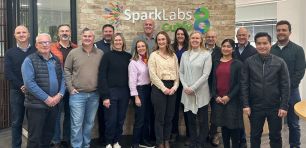
Jess Walker, community and programs manager at Airtree. Source: Supplied
Applications for the Airtree Explorer program are now open, and this time around there’s an even stronger focus on cultivating diversity in angel investing outside of Sydney and Melbourne.
Launched back in 2020, Airtree Explorer is a three-month program that focuses on making angel investing accessible. It teaches new angels everything from the ground up, including sourcing, due diligence, term sheets, and legal.
It also provides mentorship and catch-ups, and encourages new investors to create chapters in regional areas so they can continue supporting each other and startups.
“So one of the cool things is everybody in the cohort gets a buddy at Airtree who is an investor. And if you bring a startup then they’ll take you on a first meeting journey with them,” Jess Walker, community and programs manager at Airtree, said in a phone call with SmartCompany.
“You can sit in with the investor and the founder and hear first hand what the questions they asking. And you’re encouraged to participate and hone your own investment skills.”
Regional startups are having something of a moment post-COVID, and particularly in 2023. We’re seeing more investment into regional startups and as more founders find they don’t necessarily need to be in Sydney and Melbourne to be successful.
“Our goal is to grow and support the whole startup ecosystem. Capital cities aren’t the sole birthplace of entrepreneurial brilliance. The success of our previous cohort has affirmed our hypothesis that startup communities have begun to emerge and flourish outside of the metropolitan hubs,” Walker said.
Still, 87% of Australian venture capital dollars flow into Sydney and Melbourne. But there are those in the investor community trying to change this.
We need more diverse investors in Australia
Over the last couple of months alone we’ve seen Ocean City Labs, an offshoot of River City Labs open in Maroochydore as well as the latest SparkLabs Cultiv8 accelerator kick-off in Orange.
The ongoing economic and cost of living crisis has certainly encouraged more to happen outside major capital cities. But this is far from the only motivation for Airtree to be focusing more heavily on regional angels for its next Explorer cohort.
If the same demographics continue to dominate the investor space, we’re going to continue to see the same kinds of people and startups being invested in.
It’s only by moving the needle and helping to educate and empower diverse investors that we’re going to see money flowing into businesses that may otherwise be missed.
Airtree knows that providing education leads to a richer startup environment
“We wanted to increase the number of angel investors across the region, which we hypothesised would increase the number of investments that are diverse across the region as well,” Walker said.
“We track all about data in terms of inbound deals, outbound deals, and now Explorer deals. And with all the explorers that we have, there’s 50% women and non-binary angels and they bring in and tell us about way more diverse startups and companies.
“So more and more women are being seen as founders and being invested in. That’s one of the really special things that we’ve we’ve seen so far.”
While Airtree has always had a philosophy of ‘open source VC’ and offers all of its educational resources for free online, it can’t be everywhere.
And with the Explorer program lasting three months, the firm has been encouraging cohorts to start their own regional community hubs to continue their angel journey with them and discover startups doing great things outside of metropolitan areas.
“We’re a very small company in Surry Hills and we’re not going to see those amazing regional companies in Western Australia and Tasmania,” Walker said.
“It’s been wonderful to open our education up to bring in more angels but also for them to be able to support their own ecosystems and their own communities.”



COMMENTS
SmartCompany is committed to hosting lively discussions. Help us keep the conversation useful, interesting and welcoming. We aim to publish comments quickly in the interest of promoting robust conversation, but we’re a small team and we deploy filters to protect against legal risk. Occasionally your comment may be held up while it is being reviewed, but we’re working as fast as we can to keep the conversation rolling.
The SmartCompany comment section is members-only content. Please subscribe to leave a comment.
The SmartCompany comment section is members-only content. Please login to leave a comment.